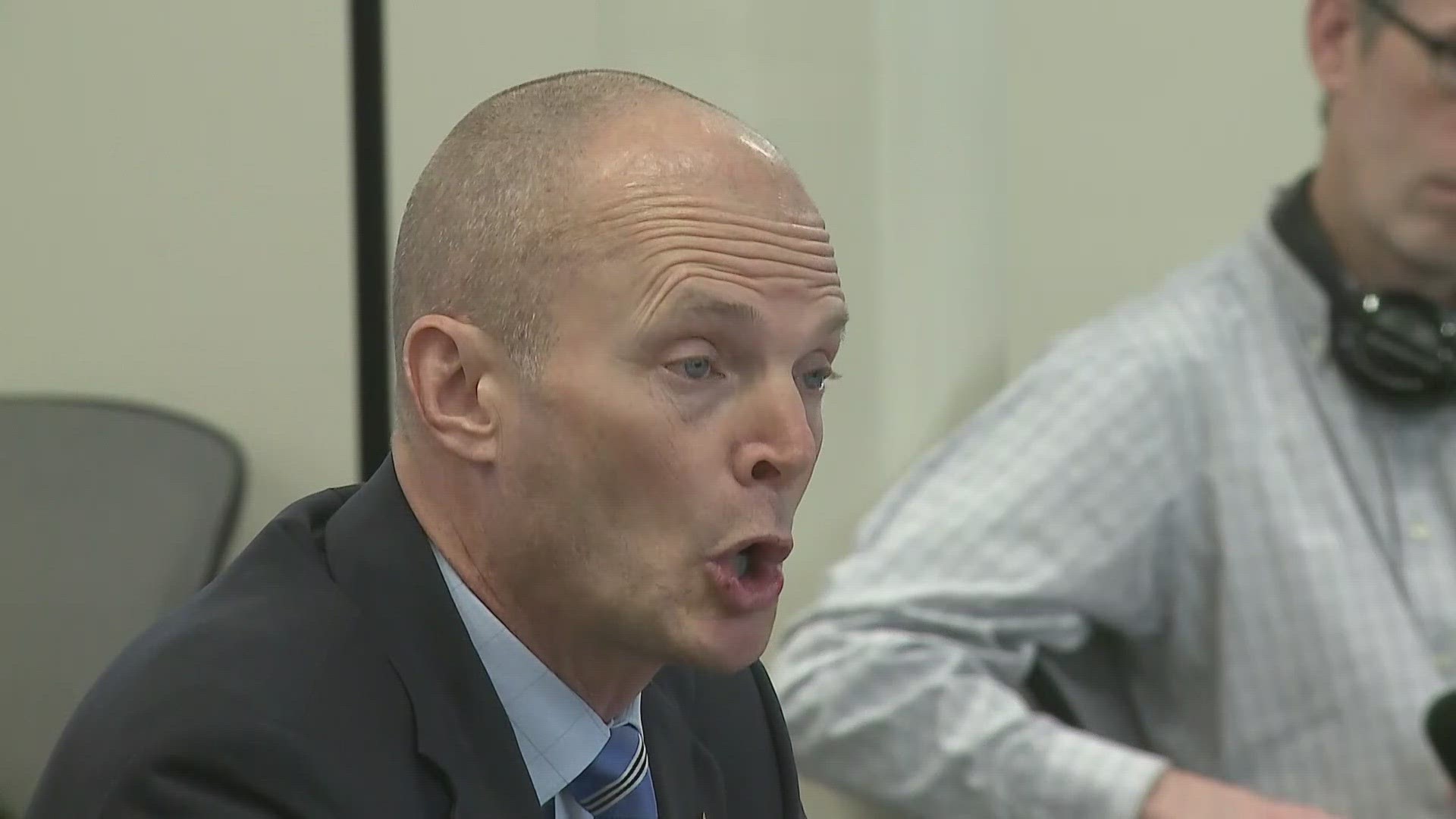AUGUSTA, Maine — A Maine sheriff on Thursday defended the actions of his deputies during interactions with an Army reservist who later killed 18 people, saying they were limited in what they could do during a welfare check and relied on family members and Army Reserve officials to respond to mental health worries without escalating the situation.
Sagadahoc County Sheriff Joel Merry addressed an independent commission that's investigating a mass shooting in Lewiston, focusing on the difficulty in balancing public safety versus individual rights. The deputies were not in a position to take Robert Card into protective custody in September, he said, despite a fellow reservist warning that he was “going to snap and do a mass shooting.”
“There is always after a tragedy an opportunity to wonder if more could have been done. But that analysis must always take into consideration the limitations placed on law enforcement by the law at the time of the event,” Merry said.
The interaction between Card and deputies during the welfare check in which Card refused to come to the door is widely viewed as a missed opportunity to take Card into protective custody, the first step in triggering Maine's yellow flag law, which allows a judge to temporarily remove weapons from someone in a mental health crisis.
Deputies were warned by Card's son and ex-wife months earlier, in May, that Card was descending into paranoia and behaving erratically, Card was briefly hospitalized in July while training with his Army Reserves unit. In both interactions with family members, in May and September, deputies were warned that confronting Card would lead to an escalation, Merry said.
After the attempted welfare check in September, Merry said, deputies believed that the matter had been “resolved” through involvement of the family and Army Reserves, and that Card posed “no risk to himself or to others.”
Democratic Gov. Janet Mills and state Attorney General Aaron Frey assembled the commission to review the events that led up to the shootings at a bowling alley and a restaurant in Lewiston on Oct. 25.
Lawyers for some of the victims’ families have pointed to missed opportunities to prevent Card from committing the shootings and was found dead afterward from a self-inflicted gunshot wound.
Mills and Frey said Wednesday that they have introduced legislation to grant subpoena authority to the commission as it investigates, a power that commissioners have said they will need.
The legislation “will ensure that the commission has the tools it needs to fully and effectively discharge its critical mission of determining the facts of the tragedy in Lewiston,” they said in a statement.
Thursday’s commission meeting was the first of four in which there will be an open forum for comments. Meetings with victims, Maine State Police, and the Army are also scheduled. Members have said they hope to produce a full report by early summer.
An independent report by the Sagadahoc County Sheriff’s Office after the shooting found that local law enforcement knew Card’s mental health was declining and that he was hearing voices and experiencing psychotic episodes. The report cleared the agency’s response to concerns about Card, but several legal experts have said it revealed missed opportunities to intervene.
The commission meeting Thursday is chaired by Daniel Wathen, former chief justice of the Maine Supreme Judicial Court. Other members include Debra Baeder, the former chief forensic psychologist for the state, and Paula Silsby, a former U.S. attorney for the District of Maine.

